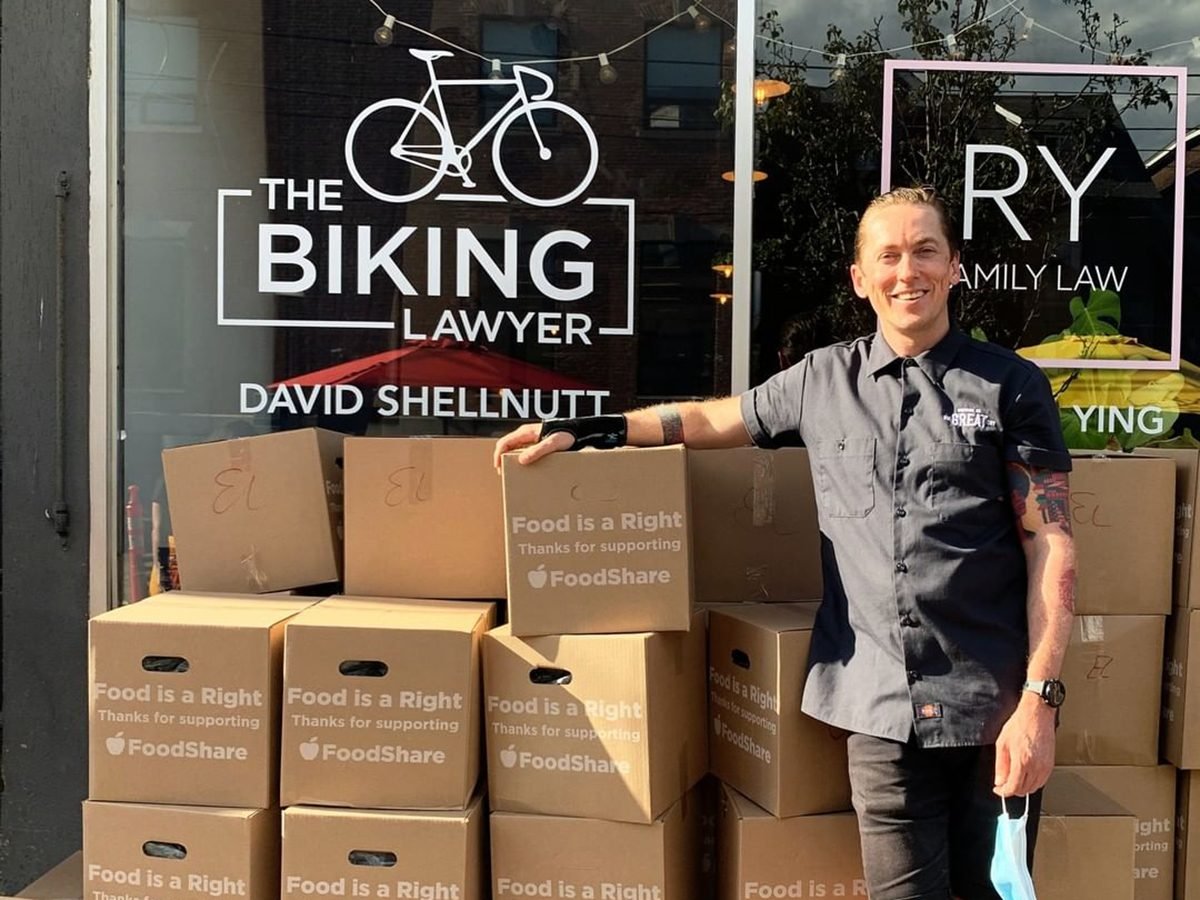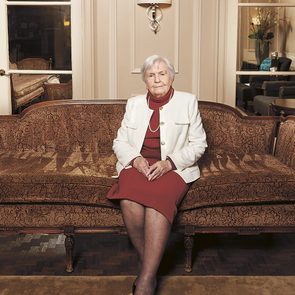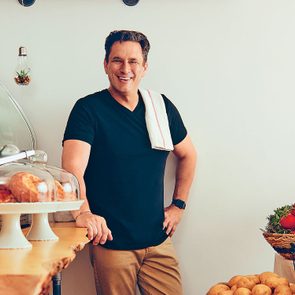These Volunteer Cyclists Are Delivering Groceries to Toronto’s Needy
David Shellnutt founded The Bike Brigade to deliver food and medical supplies to Toronto’s most vulnerable residents. Since the beginning of the pandemic, more than 800 cyclists have volunteered for the group.

When the pandemic hit Toronto last March, David Shellnutt realized that seniors like his mother would be vulnerable during the lockdown. The 38-year-old human rights and personal injury lawyer then began looking into what nearby community food organizations were doing to aid the city’s most at-risk residents: the elderly, people who had mobility issues or were immunocompromised, families experiencing food insecurity. These people needed help, Shellnutt thought—and fast.
An avid cyclist (he’s known professionally as The Biking Lawyer), Shellnutt had an idea: what if these organizations could use a free delivery service to get food directly to people’s doorsteps?
Seeing his values reflected in fellow riders, Shellnutt put out a call on Facebook for volunteers willing to deliver groceries, hot meals, medical supplies and menstrual products. Within the first month, the new service, christened The Bike Brigade, had 100 cyclists at the ready. One year later, the organization now has more than 800 registered volunteers, with new riders joining every week. Many work from home, have had their hours drastically reduced as a result of the pandemic or are currently unemployed. The Bike Brigade services what’s roughly the former City of Toronto.
“Our goal is to help folks that are disproportionately disadvantaged by systemic problems that existed before COVID-19, but also COVID-related problems that have been exacerbated,” says Shellnutt.
Since the start of the pandemic, low-wage workers and people of colour in Toronto have been hit hard with food insecurity. Policy research group PROOF and food justice organization FoodShare Toronto found that Black households are three times more likely to be food insecure than white households. “We’ve had to invent new initiatives and programs that we never imagined we would have to in order to support people through this really challenging time,” says Paul Taylor, executive director at FoodShare Toronto.
Shellnutt currently works with approximately 20 local partners, including FoodShare Toronto. Each week, The Bike Brigade delivers more than 100 of FoodShare’s Good Food boxes, which include fresh, locally grown and culturally diverse produce.
Transporting these much-needed items by bike, Shellnutt says, is a healthy, fun and cost-effective way to combine two passions: cycling and helping others. The group’s motto? “Solidarity, not charity.”
Cecily Lo, a digital marketing project manager, joined The Bike Brigade in response to Shellnutt’s Facebook post recruiting volunteers. “I’ve had a number of people express how grateful they are to us for doing this and how helpful it is to them,” she says. “And that’s always really heartwarming.” Along with volunteering as a rider once a week, Lo helps with dispatch and internal communication through The Bike Brigade’s app, which was created by a team of tech volunteers to help streamline deliveries.
By its one-year anniversary on March 16, The Bike Brigade had delivered a total of 5,000 food boxes, 7,500 hot meals, and thousands of hygiene products, PPE and therapy supplies. Using a carbon calculator based on the World Resource Institute’s Greenhouse Gas Protocol, The Bike Brigade figures that using bikes instead of cars has reduced as much as six tonnes of greenhouse gas emissions in Toronto.
Shellnutt doesn’t plan on stopping The Bike Brigade any time soon. “The longer the pandemic goes on, the tougher it’s going to be on people,” he says. “The number of meals, food and other things that we deliver has not decreased; if anything, it’s increased.” As long as the need remains, so will the volunteers’ desire to help.
Next, find out how Asian Canadians are fighting racism during the pandemic.






